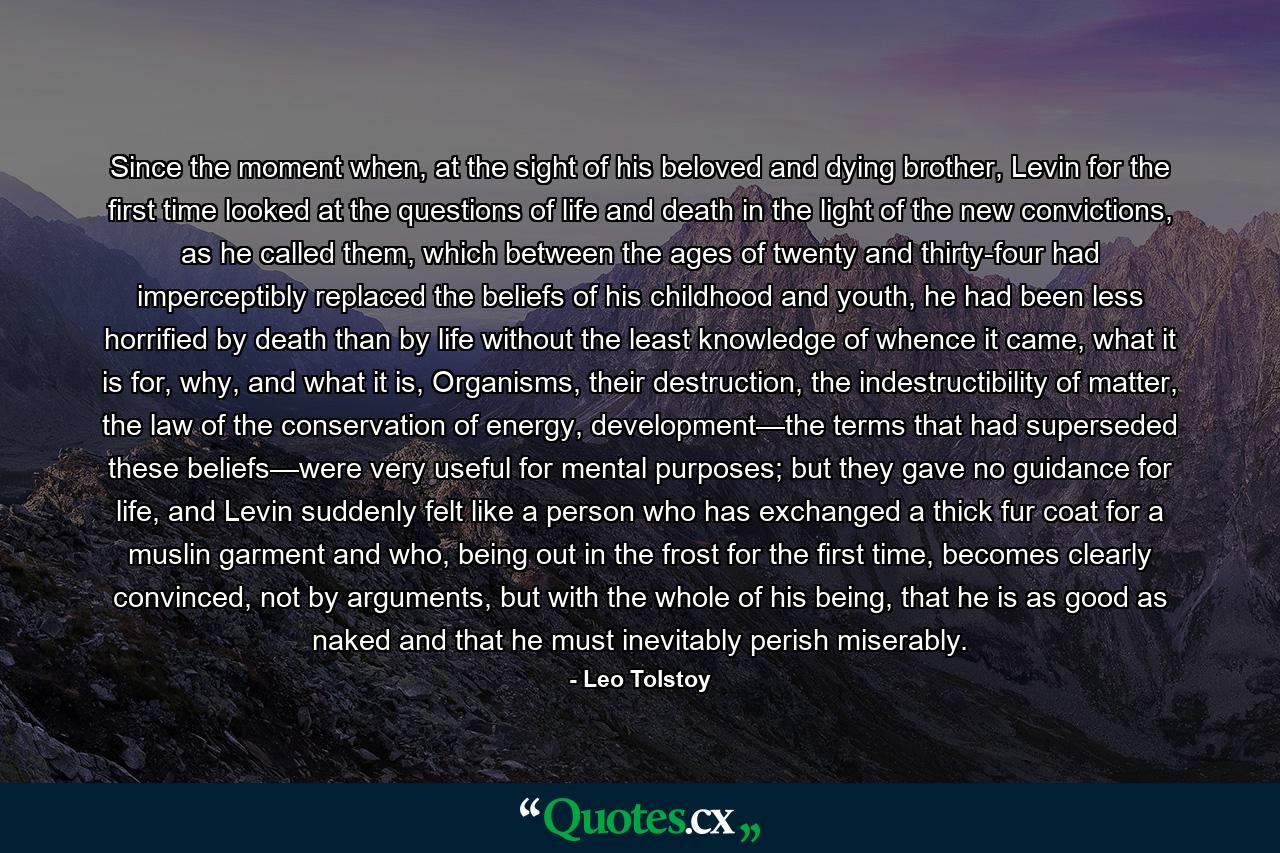Since the moment when, at the sight of his beloved and dying brother, Levin for the first time looked at the questions of life and death in the light of the new convictions, as he called them, which between the ages of twenty and thirty-four had imperceptibly replaced the beliefs of his childhood and youth, he had been less horrified by death than by life without the least knowledge of whence it came, what it is for, why, and what it is, Organisms, their destruction, the indestructibility of matter, the law of the conservation of energy, development—the terms that had superseded these beliefs—were very useful for mental purposes; but they gave no guidance for life, and Levin suddenly felt like a person who has exchanged a thick fur coat for a muslin garment and who, being out in the frost for the first time, becomes clearly convinced, not by arguments, but with the whole of his being, that he is as good as naked and that he must inevitably perish miserably.
